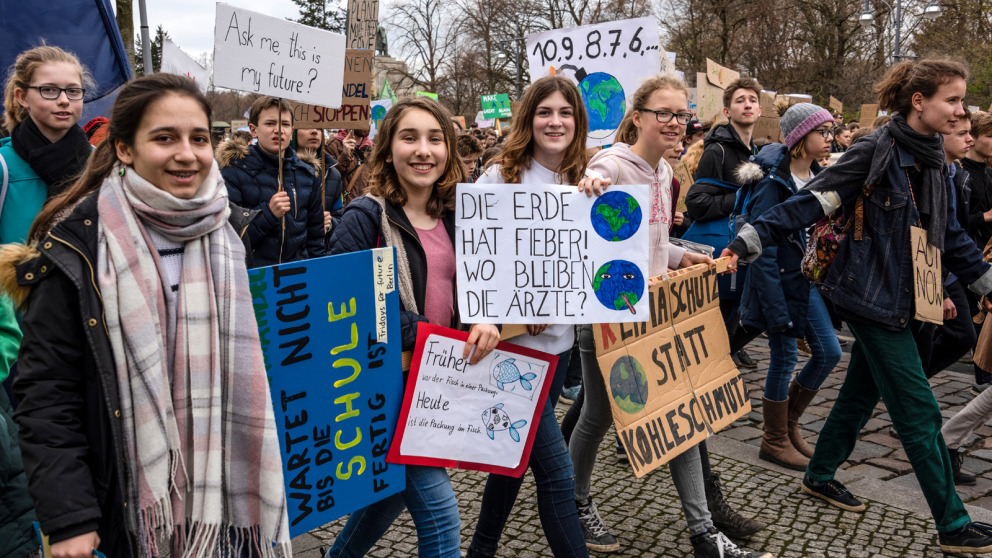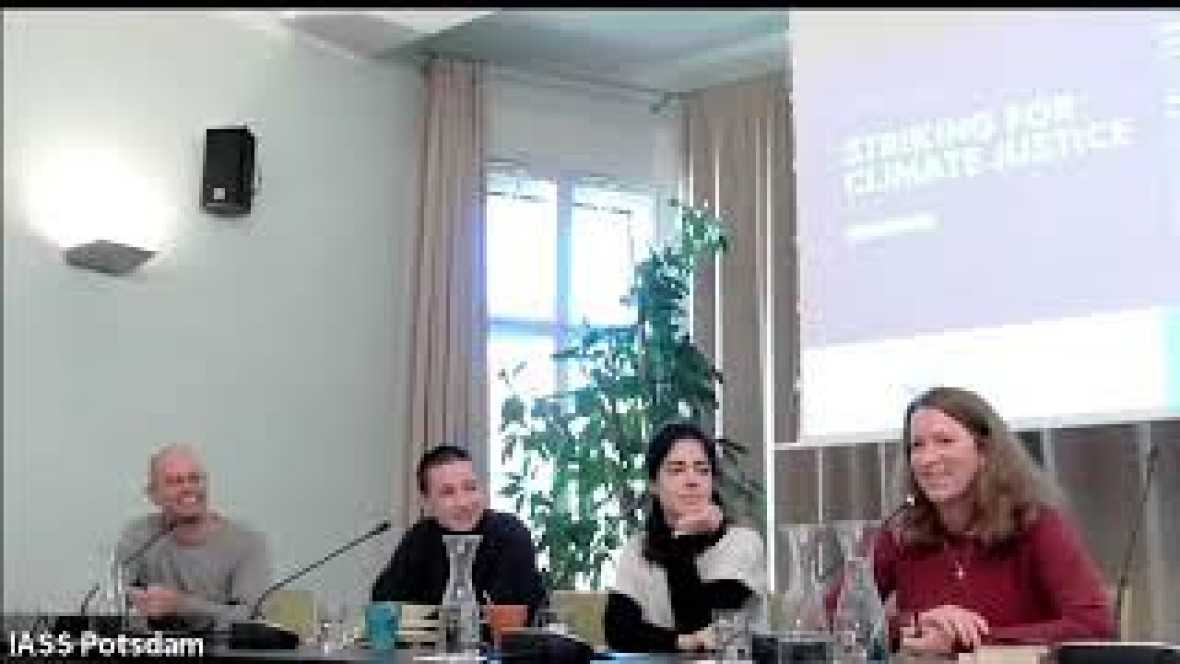Striking for Climate Justice? - a Symposium
19.10.2022

By Elias König, Christina Camier, David Fopp, Franziska Heinisch, Sophie Obinger and Payal Parekh
Were good ideas enough to overcome the climate crisis, there would probably never have been the need for a climate movement. Despite the countless number of global climate reports, policy proposals and transformation strategies published in recent years, urgency on the level of discourse has done little to change the fossil-fuel status quo. The concentration of CO2 in the atmosphere continues to climb, and the heat waves, droughts, severe downpours, forest fires and pandemics fuelled by climate change have become ever more catastrophic. In this crisis, even the best ideas have little value if policymakers don’t implement them. And time is running out. By 2030, CO2 emissions must decrease to almost half the amount released in 2019 if we are to limit global warming to 1.5°C above preindustrial levels. According to the Sixth Assessment Report of the Intergovernmental Panel on Climate Change (IPCC), the richest ten percent of households contribute between 35 and 45 per cent of greenhouse gas emissions, while the poorest ten per cent are responsible for a mere three to five per cent.
The current moment represents an enormous challenge for the climate movement, which is only just regaining momentum after two years of interruptions due to the pandemic. For the climate movement will be responsible for forcing the social and ecological restructuring needed to protect the planet – against the opposition of powerful interest groups. And while the movement has an impressive ability to mobilise, it has not lived up to its ambitions thus far.
From striking for the climate to striking for climate justice
For activists and researchers alike, this raises important questions: Which strategies and tactics should the climate movement deploy? What is the best way forward when it comes to climate strikes? What is the status of the movement for climate justice after two years of pandemic, and where is it headed? How can collective strikes be targeted when the targets are multiplying and hard to link together? Does climate justice have the same meaning for everyone, or is climate injustice what some experience most of all? The symposium Striking for Climate Justice will bring together leading activists and researchers to discuss these issues.
Elias König, a Justice and Sustainability Fellow at the IASS, notes that “a reparative turn has emerged in recent years, especially among the Fridays for Future groups. Issues such as global justice, criticism of colonial structures and climate reparations have increasingly come to the fore as the global climate movement has turned up the intensity of its rhetoric. Now we need to develop effective political practice that will reinforce climate demands at the level of policy and society .”
What’s next for the climate justice movement?
For David Fopp, the senior lecturer and co-founder of Scientists for Future, a paramount question going forward is how to build a global democracy and democratise global movements. Payal Parekh, a researcher and climate activist, asks, “How do we both broaden and deepen movement – in other words, how do we escalate?” The climate activist Franziska Heinisch, the co-founder of Justice is Global, adds, “Whether it’s the fight to improve conditions at hospitals for healthcare workers or the coming disputes surrounding increased wages in the fall and winter months, union strikes are back. The climate movement has recently adopted the same approach to conflict. Now it is time to bring the two movements together so that we can build a social basis for real change.” As Sophie Obinger, of Kali Feminists, emphasises, “to find ways out of crisis capitalism, we must reclaim the political strike. Forging a society based on the tenets of feminism and climate justice has long since become an existential issue.”
The organisers of Striking for Climate Justice invite other researchers and activists to join the conversation. The symposium will take place on 21 October 2022, from 3pm to 6pm, and on 22 October 2022, from 1pm to 6pm, at IASS, located at Berliner Str. 130, Potsdam 14467. The discussions on the 21st will be in English. Those on the 22nd will be held in German.
Register here: https://eveeno.com/strikingforclimatejustice
See the conference programme here: https://www.iass-potsdam.de/de/veranstaltungen/striking-climate-justice
Media
Paneldiskussion: Gemeinsam Streiken, aber wie? (in german)

